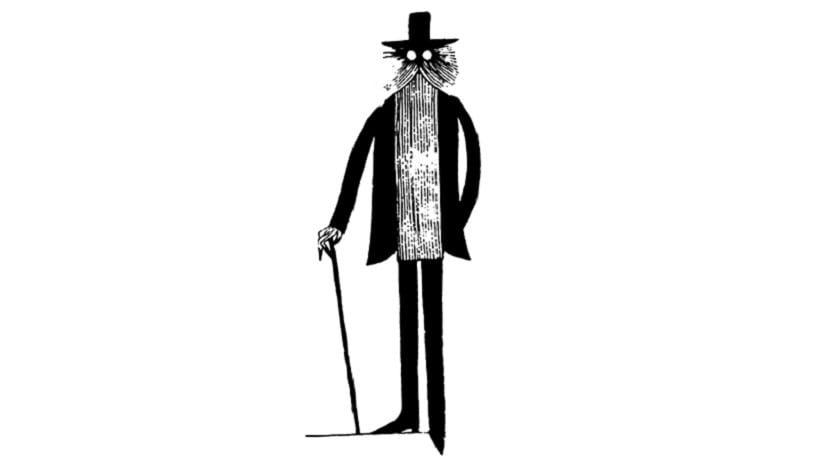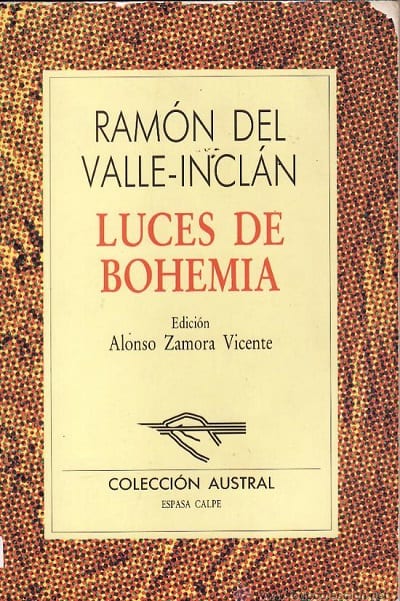
"Bohemian lights" focuses on the nocturnal walk through the streets of Madrid of a finished and idealistic poet: Max Star, accompanied by his friend Latin gift. In line with this constant wandering, the author satirizes the characters and the situations that are created around them: life in the tavern, the strike, the intervention of the police, religion, modernist poetry, etc.
"Bohemian lights" It ends with the tragic death of Max, who perfectly represents the defeat of idealism and the impossibility of a just and egalitarian society.
Most representative dramatic aspects
The most representative dramatic aspects of the work are:
- Modular. The book is divided into 15 scenes that are united by the journey of their protagonists. The scenes can be grouped into two parts: The first part that would correspond to scenes from I to XII, made up of a prelude that represents the situation, a central body that involves the wandering of the characters as we mentioned earlier and ending in the one that ends this pilgrimage and the theory of the grotesque is presented, Max dying. On the other hand we have the second part, which is made up of an epilogue that closes the work. In it the death of Madamme Collet and Claudinita takes place, which is announced at the beginning, and the prize of the lottery tenth is known.
- Space and time. "Bohemian lights" It takes place in just over 24 hours: from sunset on the first day to the night of the next. In this little dramatic time a vast historical time is gathered, disorderly. Valle-Inclán resorts to anachronism, which allows you to condense various aspects that interest you in the same story. Faced with this temporary condensation, the work shows a great spatial extension.
- Annotations. In this work, they are of great importance. They do not have an exclusively dramatic function; many times they are literary in nature and function as a vehicle for the voice of a narrator, which brings the work closer to the novel.
On the other hand, if we look at the protagonists and their conflicts, "Bohemian lights" It has a great abundance of characters, most of them seen in a grotesque position of superiority. Valle-Inclán directed a sour humorous vision towards them. The author presented beings that moved by their own selfishness, frivolity and hypocrisy.

Max Estrella, the main character
Max Estrella, the protagonist of this novel is a blind and poor poet, whose name has an ironic symbolic meaning; most likely refers to "luck" (star ", which he always lacked. Fortune continually mocks him and the clear example is that the winning lottery ticket happens right after his death. He is terribly doomed to a cruel fate : the disgrace.
Max represents a bohemian idealistic intellectual that you do not want to submit to commercial interests, but to aesthetic quality. Finally, he ends up realizing the futility of this attitude: he lives out of time, his ideals do not fit with that society and the misery that surrounds everything bohemian succumbs to the power of money of everything related to the bourgeoisie.
This character and the mother of the dead child or the prisoner are the only characters that Valle-Inclán "respects" and does not apply distancing so seriously creepyo.
Don Latino, who always accompanies Max, represents the parasitic, inactive and cynical bohemia.
Ideological aspects of «Luces de bohemia»
Regarding these ideological aspects, the "satire" that takes place around the literature itself. The book uses various literary quotes that are framed in burlesque contexts and are subjected to distorting aesthetics. A satirical reminiscence of "The Divine Comedy" de Dante Alighieri (Max experiences a particular descent into the hell of Madrid) and it is also seen in Max's funeral as a parody of Ofelia's, in the play "Hamlet". This comic contrast between hard life and literature also has a tone of disappointment and bitterness.
Luces de Bohemia is apparently one of those works that penetrates the absurdity of life. I look for the drama loaded with what takes you out of this tangible plane. There is something beyond, accessible by deciding to roam stocks of infinite variety. Is this work an example of it? Do not know. I will read.